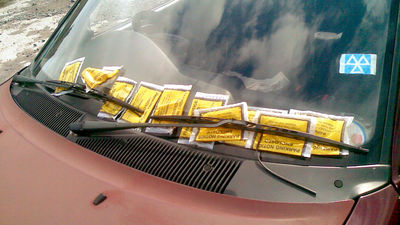Criticism of the frightening network of public road security cameras that can track every individual car

The state of North Carolina in the United States has introduced a camera system provided by a private company that reads license plates of automobiles. The system captures the license plates and characteristics of all passing vehicles, and can collect data on vehicles related to crimes as well as those of ordinary citizens, and can only be accessed by law enforcement agencies in and outside the state for investigative purposes. However, the camera system has been heavily criticized by privacy advocates.
Increase in roadside cameras brings more surveillance to NC | Raleigh News & Observer
One Company Is Recording Tens of Millions of License Plates Per Month Across 47 States
https://www.motorbiscuit.com/flock-safety-alpr-license-plates/
In North Carolina, Automobile License Plate Recognition (ALPR) cameras, provided by a private company called Flock Safety, are becoming increasingly popular. ALPR systems typically consist of cameras installed in areas where vehicles pass by, which take images of the vehicle's license plate and use optical character recognition (OCR) technology to read the numbers and characters on the license plate. The license plate information is then recorded in a database along with the date, time, location, and an image of the vehicle.
I saw someone with an unmarked van installing cameras in my neighborhood this week.
— Eric Fiedler (@e_fiedler) May 1, 2024
The camera blend in until you spot the first one.
After that, you can't see the top-heavy black poles everywhere.
And so I went down a rabbit hole... pic.twitter.com/2eyCPsyCKB
Flock Safery has more than 700 cameras in more than 70 counties and municipalities across the state, and has received millions of dollars in public funding from state law enforcement agencies, but privacy advocates warn that the company's camera network creates a surveillance system on an unprecedented scale.
Jay Stanley, a senior policy analyst at the American Civil Liberties Union (ACLU), said, 'Until now, police have not been able to see the history of vehicles traveling across the country. The Flock Safety ALPR gives them this ability, which is extremely powerful.' He argues that storing private citizens' data for long periods of time could lead to it being misused for purposes other than investigative purposes.
Dave Maass of the Electronic Frontier Foundation also warned about ALPRs, 'ALPRs aren't recording crimes, they're recording the perfectly legal act of driving on public roads. This means more people will be subject to scrutiny when a crime is committed.'

Privacy advocates also worry about the uneven placement of the cameras: An analysis by the city of Greensboro, North Carolina, found that Black neighborhoods have a higher density of cameras than white neighborhoods. Maas noted that adding more cameras to Black and Hispanic neighborhoods means more surveillance of drivers in those areas, even if unintentional.
Flock Safety claims its technology is a valuable tool in criminal investigations, highlighting examples of its ALPRs helping detect stolen vehicles, finding missing people, and arresting suspects. But privacy advocates argue that the effectiveness of ALPRs in crime prevention has not been scientifically proven, and that there is no clear impact that ALPRs have on crime or arrest rates.

In addition, while Flock Safety has been growing rapidly, it has also had trouble with state regulators in the states it operates in. In North Carolina, it was discovered that the company had been operating without the necessary licenses for more than two years, and regulators sued the company. Flock Safety subsequently applied for licenses, but it was revealed that it had under-reported the number of customers in the state.
The News & Observer argued, 'Balancing the convenience of technology with privacy protection is not easy. However, by sharing ideas and engaging in constructive discussions across the community, North Carolina may be able to set a pioneering model for balancing surveillance and freedom. Communities across the state are being challenged to explore how to use new technology, such as ALPRs, and walk the fine line between a surveillance society and a free society.'
Related Posts:







